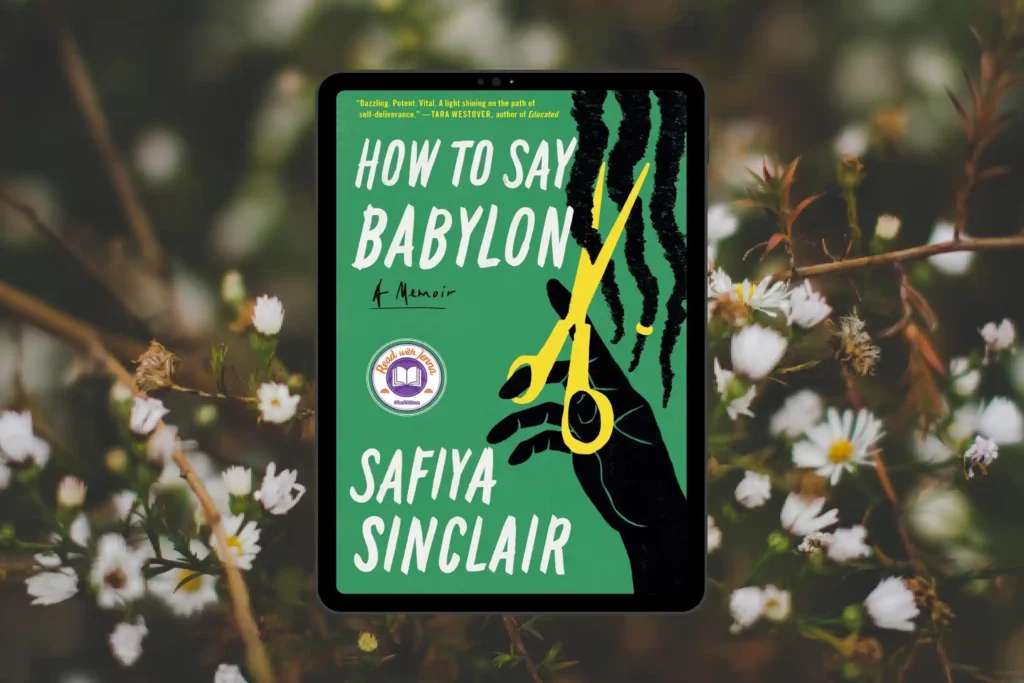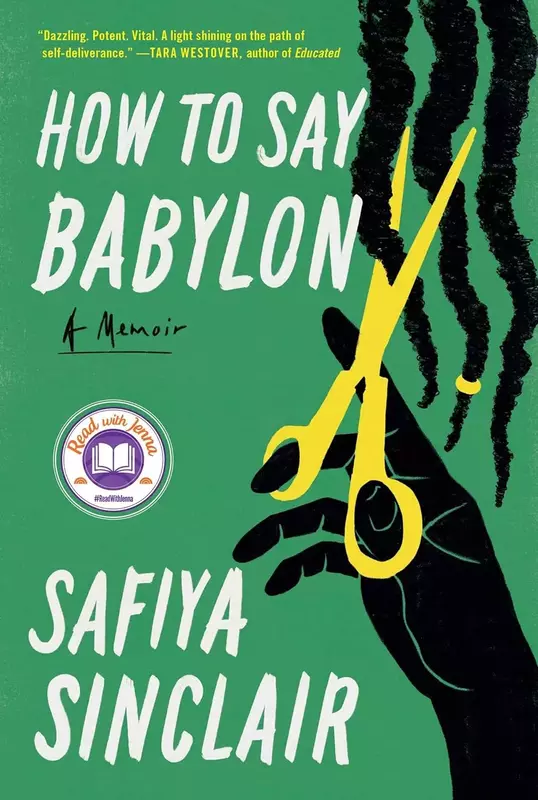This post may contain affiliate links. Read more here.

Editorial note: I received a copy of How to Say Babylon by Safiya Sinclair in exchange for a review. All opinions are my own.
Book review and synopsis for How to Say Babylon by Safiya Sinclair, a captivating memoir that delves into the intricacies of identity, family, and societal expectations within the Rastafarian culture of Jamaica.
Sinclair’s poetic prose paints a vivid picture of her upbringing, navigating the clash between tradition and modernity in a seaside Jamaican village.
But is it worth reading? ❤️
How to Say Babylon by Safiya Sinclair
Plot Summary | Book Review | Criticism | Read or Skip?
Plot Summary
How to Say Babylon by Safiya Sinclair, tells the powerful story of the author’s struggle to break free from her strict Rastafarian upbringing in Jamaica.
Safiya’s father, a reggae musician, imposed strict rules on her and her sisters to protect them from what he saw as corrupting influences of the outside world, known as Babylon. He restricted their clothing, friendships, and even their opinions.
Despite these restrictions, Safiya’s mother introduced her to the world of books and poetry, which became her escape.
As Safiya grew older, she used her education as a way to rebel against her father’s oppressive beliefs. This memoir explores Safiya’s journey as she finds her voice as a woman and poet, despite the challenges and violence she faces from her father.
This is a universal story of a woman finding her power and also sheds light on the Rastafari culture and its impact on individuals, especially women, in Jamaica.
Book Review
Born in a seaside Jamaican village near Montego Bay, Sinclair’s childhood was marked by the clash of ideologies within her strict Rastafarian family on the fringes of a hedonistic tourist hub.
At the age of 8, Sinclair had already absorbed her father’s passionate condemnations of Ronald Reagan and Margaret Thatcher. This fervent anti-establishment sentiment was evident even in the names they chose for their first pets, “Reagan” and “Thatcher.”
Despite the heavy symbolism attached to these names, the children grew to adore their pets, only to mourn their untimely demise at the hands of a resentful neighbor.
Societal struggles
Sinclair’s story is not just a personal narrative; it is a tale of two dysfunctional systems—the struggles within her family, where her father, a reggae musician, grappled with his beliefs while craving the trappings of Western influence, and the broader societal challenges faced by Rastafarians in Jamaica, a nation that paradoxically celebrates the iconic Bob Marley while marginalizing its own Rastafarian citizens.
The memoir delves into Sinclair’s formative years, exploring her relationship with her father, Djani, a mercurial musician, and her mother, Esther, a nurturing yet seemingly submissive figure. The family’s dynamics were shaped by contradictions, with Djani despising the corrupting influences of “Babylon” while secretly yearning for its material comforts.
Education and identity
Sinclair’s experiences growing up are both heartwarming and heart-wrenching. Her mother provided solace through books, fostering Sinclair’s love for literature and poetry, yet even this refuge couldn’t shield her from the harsh realities of her father’s strict beliefs.
Sinclair’s journey through adolescence, marked by scholarship achievements, budding literary success, and the painful realization of her father’s limitations, is portrayed with raw honesty.
One particularly poignant moment in the memoir stands out when Sinclair gained a scholarship to an elite private school. Her father, filled with pride, envisioned a future of opportunities and advancement for his daughter. However, the harsh reality of inequality hit Sinclair when she faced unjust punishment at the hands of a biased system, highlighting the disparities that persisted in Jamaican society.
Immersive narration
Reading Sinclair’s words was an immersive experience, like diving into the depths of her memories and emotions. Her vivid descriptions painted a picture of Jamaica that was both familiar and disconcerting, capturing the essence of the island’s beauty and its underlying struggles.
Through her prose, Sinclair eloquently explored the complexities of identity, family, and societal expectations, leaving me profoundly moved and contemplative.
Some criticism
While Safiya Sinclair’s memoir is undeniably powerful and beautifully written, there are moments when the narrative feels slightly disjointed.
This richness in language, although poetic, might be a barrier for some readers, hindering their ability to fully engage with the story without getting lost in the complexity of metaphors and symbolism.
The nonlinear storytelling, while poetic in its approach, occasionally makes it challenging to follow the chronology of events. As a reader, I found myself yearning for a more structured narrative flow that would have enhanced the clarity of the storyline.
Additionally, while the memoir delves deeply into Sinclair’s personal experiences, there are moments when the broader socio-political context of Jamaica could have been explored in more detail.
A more comprehensive exploration of the Rastafarian community’s struggles within Jamaican society would have provided a more nuanced understanding of the challenges faced by Sinclair and her family.
Read it or skip it?
If you appreciate immersive storytelling that delves deep into the human experience, How to Say Babylon is undoubtedly a book worth reading.
Safiya Sinclair’s poetic prose invites readers into a world of familial complexities, societal challenges, and personal triumphs. Her raw and honest exploration of identity, rooted in the Rastafarian culture of Jamaica, provides a unique perspective that is both enlightening and deeply moving.
For those who enjoy rich, metaphorical language and are willing to invest time in deciphering intricate narratives, this memoir offers a profound literary experience.
However, if you prefer straightforward, linear storytelling without the adornment of elaborate metaphors, this book might prove to be a challenging read. The non-linear narrative and ornate language may require patience and careful attention from the reader.
Happy reading! ❤️
